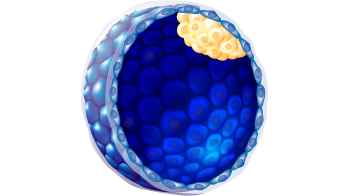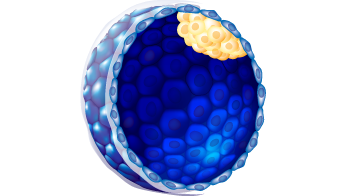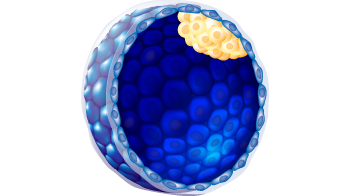HuES9
HVRDe009-A
General
Donor Information
General Donor Information |
|
| Sex | female |
Phenotype and Disease related information (Donor) |
|
| Diseases | No disease was diagnosed.
|
Other Genotyping (Donor) |
|
| Is there genome-wide genotyping or functional data available? |
Yes
|
External Databases (Donor) |
|
| BioSamples | SAMEA8944198 |
Ethics
| Was the embryo established purely for research purposes? | No |
| Have both parents consented to the use of the embryo for ESC derivation? | Yes |
| Has informed consent been obtained from the donor of the embryo/tissue from which the pluripotent stem cells have been derived? | Yes |
| Was the consent voluntarily given? | Yes |
| Has the donor been informed that participation will not directly influence their personal treatment? | Yes |
| Can you provide us with a copy of the Donor Information Sheet provided to the donor? | No |
| Do you (Depositor/Provider) hold the original Donor Consent Form? | No |
| If you do not hold the Donor Consent Form, do you know who does? | No |
| Alternatives to consent are available? | Yes |
| Alternatives to consent | Please see the NIH hESC Registry https://grants.nih.gov/stem_cells/registry/current.htm?id=40 HUES 9 was given the NIH Approval Number NIHhESC-09-0022 |
| Alternative consent approval number | NIHhESC-09-0022 |
| Please indicate whether the data associated with the donated material has been pseudonymised or anonymised. | anonymised |
| Does consent explicitly allow the derivation of pluripotent stem cells? | Yes |
| * Does consent expressly prevent the derivation of pluripotent stem cells? | No |
| Does consent prevent CELLS DERIVED FROM THE DONATED BIOSAMPLE from being made available to researchers anywhere in the world? | No |
| How may genetic information associated with the cell line be accessed? | No information |
| Will the donor expect to receive financial benefit, beyond reasonable expenses, in return for donating the biosample? | No |
| Has a favourable opinion been obtained from a research ethics committee, or other ethics review panel, in relation to the Research Protocol including the consent provisions? | Yes |
| Name of accrediting authority involved? | Harvard University Committee on the Use of Human Subjects/ Harvard ESCRO Committee |
| Approval number | unknown/check http://stemcelldistribution.harvard.edu/content/view/21#hues-lines |
hESC Derivation
| Date of derivation | 2004-03-01 |
| Embryo stage | Blastula with ICM and Trophoblast |
| Supernumerary embryos from IVF treatment? |
Yes
|
| PGD Embryo? |
No |
| Expansion status |
3
|
| ICM morphology |
A
|
| Trophectoderm morphology |
a
|
| ZP removal technique | Chemical |
| Cell isolation | Immunosurgery |
| Cell seeding | Isolated ICM |
Culture Conditions
| Feeder cells |
Mouse Embryonic Fibroblast Cell Cellfinder Ont Id: EFO_0004040 |
||||||
| Medium |
Other medium:
Base medium: Knockout-DMEM
Main protein source: Knock-out serum replacement Serum concentration: % Supplements
|
Characterisation
Analysis of Undifferentiated Cells
| Marker | Expressed | Immunostaining | RT-PCR | Flow Cytometry | Enzymatic Assay | Expression Profiles |
| Alkaline Phosphatase |
Yes |
|
||||
| SSEA-3 |
Yes |
|
||||
| SSEA-4 |
Yes |
|
||||
| TRA 1-60 |
Yes |
|
||||
| TRA 1-81 |
Yes |
|
||||
| DNMT3B |
Yes |
|
||||
| GABRB3 |
Yes |
|
||||
| GDF3 |
Yes |
|
||||
| NANOG |
Yes |
|
||||
| POU5F1 (OCT-4) |
Yes |
|
||||
| ZFP42 (REX-1) |
Yes |
|
||||
| TDGF1 |
Yes |
|
Differentiation Potency
Genotyping
Karyotyping (Cell Line) |
|
| Has the cell line karyotype been analysed? |
Yes
46XX,inv9
Passage number: 13
|
Other Genotyping (Cell Line) |
|


Login to share your feedback, experiences or results with the research community.